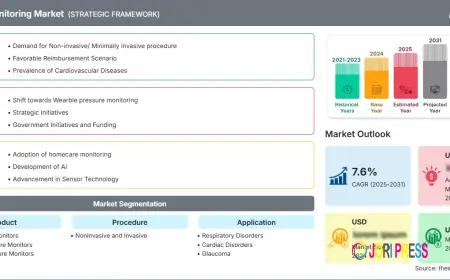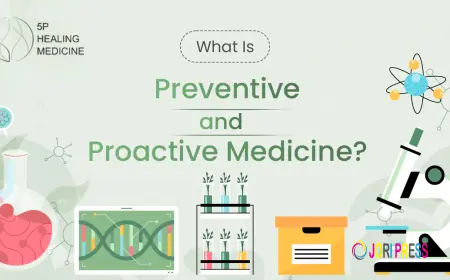Transforming Mental Health: Inclusive Support for Every Journey
Explore how inclusive mental health support is transforming lives. Discover practical solutions and compassionate care for every journey at Turning Point Interventions.

Mental health is no longer a topic to be whispered about—it’s a vital part of our overall well-being and deserves the same level of care and attention as physical health. As we move into a more aware and compassionate world, the need for inclusive mental health support becomes increasingly important. Every individual’s journey is different, and ensuring everyone feels seen, heard, and supported can change lives in remarkable ways.
That’s exactly the mission at Turning Point Interventions: to create a safe and welcoming space for people from all walks of life, offering inclusive care that meets each person where they are. Whether you're struggling with anxiety, navigating trauma, or simply seeking emotional growth, personalized mental health support can make a world of difference.
Why Inclusivity in Mental Health Support Matters
Mental health challenges affect people across every age, background, culture, and identity. However, the services available don’t always reflect that diversity. Inclusivity in mental health means recognizing that people come with different experiences, beliefs, and needs, and responding with tailored support.
Key reasons why inclusivity is essential:
- Accessibility: Services must accommodate people with physical, language, cultural, or financial barriers.
- Representation: Clients should see themselves reflected in the staff, materials, and practices of their care provider.
- Cultural sensitivity: Understanding cultural perspectives on mental health reduces stigma and improves outcomes.
- Individual respect: No two people are alike. Inclusive care honors differences while building common ground for healing.
Inclusive mental health care helps foster trust, encourages more people to seek support, and ultimately leads to better, more sustainable progress.
Understanding Different Mental Health Journeys
Everyone’s mental health story is unique. While some individuals may face specific diagnoses, others may be dealing with life transitions, stress, or grief. Understanding these different journeys allows mental health professionals to offer relevant, effective help.
Common areas where inclusive support is needed:
- Youth and adolescent mental health: Teenagers often struggle with identity, peer pressure, and academic stress. They need guidance that respects their growing independence.
- Postpartum and maternal health: New parents, especially mothers, may face depression, anxiety, or identity shifts.
- Trauma recovery: Survivors of abuse, violence, or displacement need a trauma-informed approach that avoids re-triggering and promotes empowerment.
- LGBTQ+ mental health: Members of the LGBTQ+ community often face higher rates of anxiety, depression, and discrimination. Affirming care is vital.
- Work-related stress and burnout: Professionals navigating high-stress environments benefit from strategies that restore balance and purpose.
At Turning Point Interventions, these experiences are not treated with a one-size-fits-all mindset. Instead, clients receive care that honors who they are and what they need in that moment.
What Does Inclusive Mental Health Support Look Like?
It’s one thing to talk about inclusivity, it’s another to practice it effectively. Truly inclusive mental health services make tangible efforts to ensure every person feels welcome and valued.
Features of inclusive support include:
- Diverse and trained staff: Counselors who understand varied cultural, gender, and socio-economic backgrounds.
- Flexible treatment options: Both in-person and virtual sessions, group therapy, creative expression therapy, and trauma-informed care.
- Client-centered language: Avoiding judgmental terms and instead using empowering, respectful communication.
- Safe environments: Offices and virtual spaces where people feel physically and emotionally secure.
- Education and outreach: Normalizing mental health in communities where stigma may still be strong.
By integrating these elements into every aspect of service, mental health providers can reach and support more people effectively.
Building a Future Where Mental Health Is for Everyone
As awareness grows, so does the demand for mental health services that are empathetic, responsive, and inclusive. The goal is not just to treat symptoms but to transform lives, to help people build resilience, rediscover purpose, and reconnect with themselves and others.
Here’s what the future should prioritize:
- Early intervention: Encouraging support at the first signs of struggle can prevent more serious issues later.
- Community-based care: Making support available in schools, workplaces, and community centers.
- Removing stigma: Open conversations and mental health education are key to creating more supportive environments.
- Whole-person approaches: Addressing mental health in connection with physical health, lifestyle, and relationships.
When these steps are implemented, mental health becomes not just a service, but a cornerstone of every healthy community.
Final Thoughts
Mental wellness is not a privilege, it’s a human right. Everyone, regardless of their background or circumstances, deserves compassionate and competent care. By embracing inclusive mental health practices, we build a world where no one is left behind in their journey toward healing.
At Turning Point Interventions, we believe in walking beside you on your path, not ahead of you, not behind you, but with you. Through personalized care, cultural sensitivity, and a strong sense of community, we help individuals find strength, purpose, and peace of mind.
If you or someone you know is seeking a safe, understanding space for mental health support, reach out today. Your turning point could be just a conversation away.
What's Your Reaction?
 Like
0
Like
0
 Dislike
0
Dislike
0
 Love
0
Love
0
 Funny
0
Funny
0
 Angry
0
Angry
0
 Sad
0
Sad
0
 Wow
0
Wow
0
















































